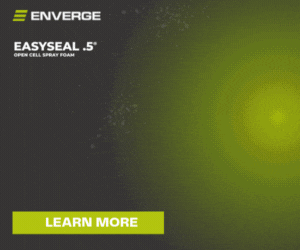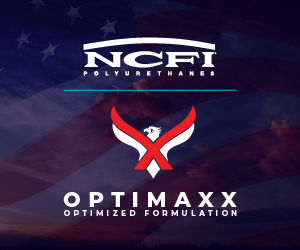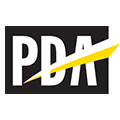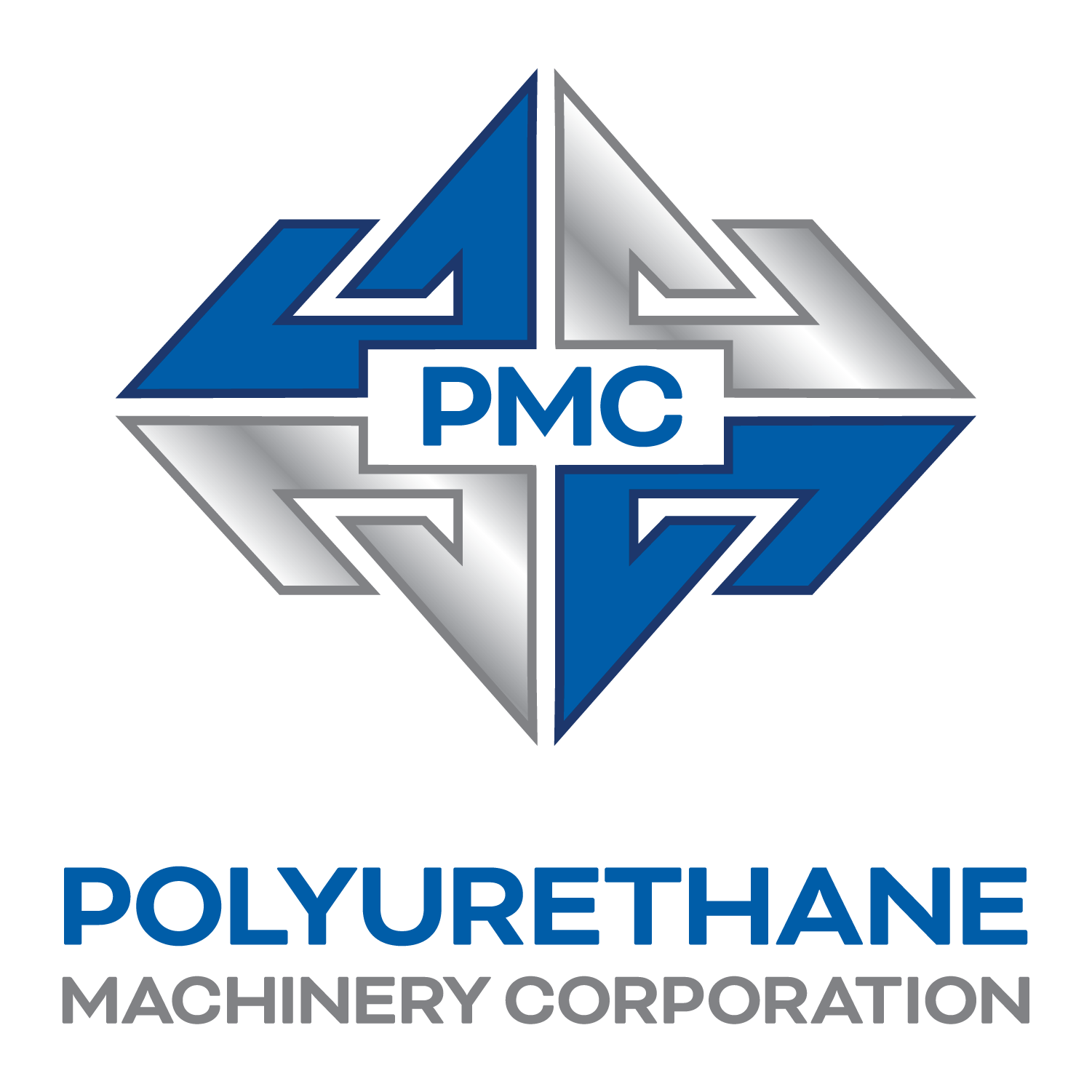Injecting Stability
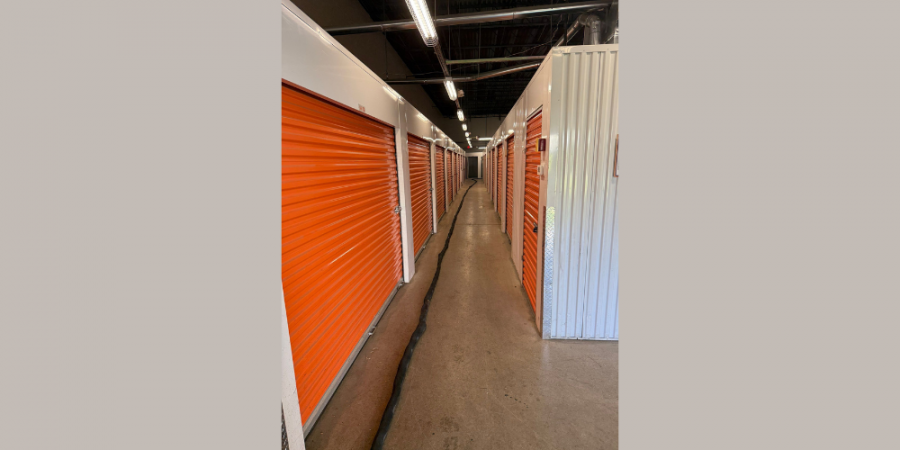

Spray Foam Magazine – Late Summer 2025 – What happens when a significant void is discovered at a public storage facility in Methuen, Massachusetts? In this case, a project effectively utilized the skills, judgment, and quick thinking of one company to prevent the void from causing further damage, significant cracking, and settlement to the surrounding soil and slabs. The Spray Foam Magazine team spoke with Matt Snow, a project manager at Ram Jack New England, to learn more about the situation.
Ram Jack New England has been operating in the region for over 15 years. Their trusted engineers provide a range of foundation repair services, including repairs for foundations, crawlspaces, walls, patios, and stairways, as well as the installation of new construction helical piles. The storage facility in Massachusetts required urgent void filling. If left unaddressed, the slab would likely have continued to settle and crack, resulting in structural instability and potential safety hazards, which are especially concerning in a facility with frequent foot traffic and heavy storage loads. Additionally, the building is in a commercial area, with a flowing brook approximately 100 feet behind it, which added to the project's complexity.
The project was initiated by Thomas Cove, an employee of JBR Associates LLC, a construction firm based in Amherst, NH that specializes in the construction and renovation of commercial buildings. Thomas reached out to Ram Jack New England in January 2025 to schedule an on-site evaluation. After conducting the initial site evaluation, Matt Snow and the Ram Jack team assessed the extent of the voids and soil conditions. Matt determined that geotechnical polyurethane foam would be the most effective and least disruptive option.
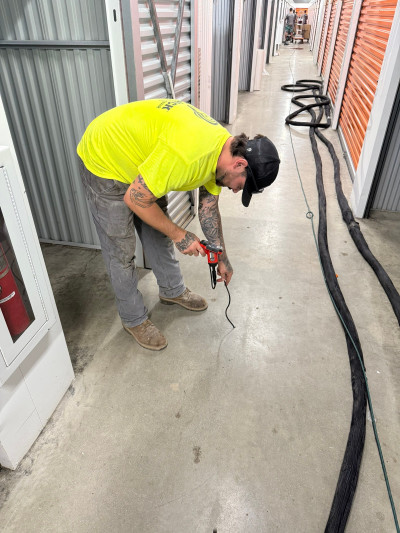
This method offered an ideal balance of speed, precision, and structural stabilization, especially important given that this was an active public storage facility. During the evaluation, Matt identified factors such as soil erosion, poor soil compaction, and the proximity to the brook that contributed to the formation of the void beneath the rear portion of the slab. Ram Jack utilized both existing and new test holes, along with a fluoroscope, to assess the situation. They discovered voids ranging from one to six inches deep beneath approximately 2,000 square feet of slab, which led to significant cracking and settlement. Matt concluded that the foam should be injected in a six to eight-foot grid pattern to consolidate the underlying soil and eliminate the voids beneath the concrete masonry unit (CMU) block wall foundation.
The client approved Ram Jack's geotechnical foam method. Choosing this option was essential, as alternatives would have involved excavation, subbase repair, and repouring the slab would be far more disruptive and costly. The geo foam solution provided a non-invasive, cost-effective fix with minimal downtime.
Once the project received approval, the Ram Jack crew coordinated with the client to ensure that the necessary preparatory work was completed before their arrival for installation.
Given that the crew's office in Wareham, MA, requires a four-hour round trip, everything had to be ready by the time they arrived on-site. This included clearing out the necessary storage units and confirming utility markings prior to mobilization.
There was also an on-site dumpster that was supposed to be relocated by others before the job began, but unfortunately, that did not happen. As a result, the crew had to navigate around it during setup, which created some logistical challenges, such as the need for additional hose length. Nevertheless, they managed to work through it without delaying the project. The property manager also hired a security team and a moving team. The security team ensured the site remained safe and secure during working hours, while the moving team helped relocate any items that were in the way before the crew arrived. Given the public nature of the space, the crew coordinated the placement of temporary caution signage and maintained regular communication with building management to ensure a safe and orderly work environment.
On the first day, Ram Jack’s project manager, Matt, who has been with Ram Jack for over 5 years, was present on-site to oversee mobilization and coordination.
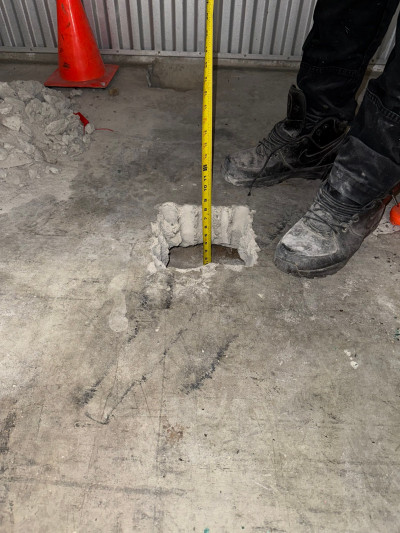
First the team searches for voids with a borescope before opening up the ground and prepping for the foam installation.
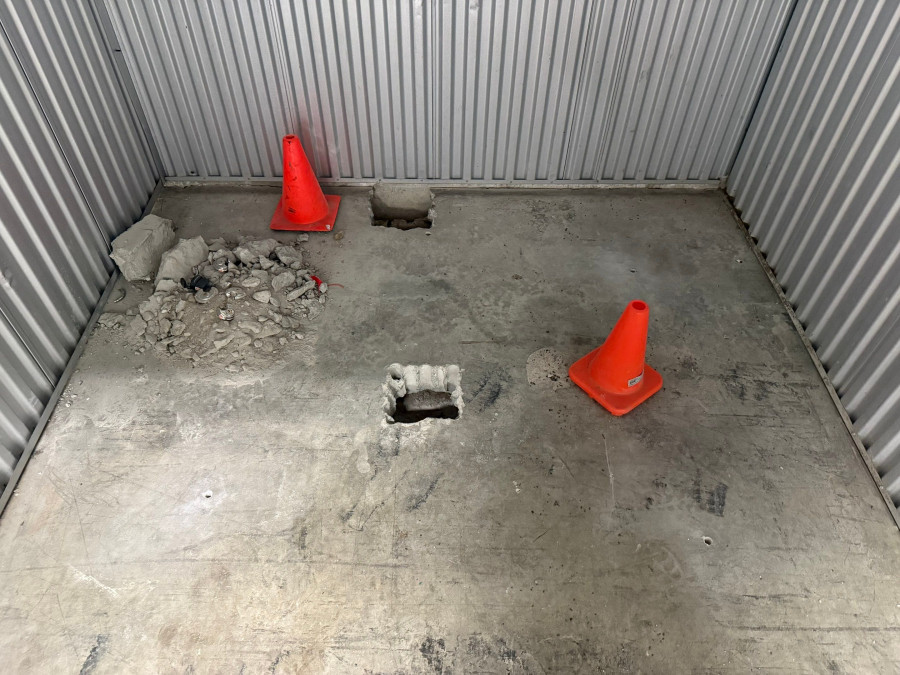
With a two-man installation crew managing the full scope of the work they operate as a team, rotating responsibilities including who operates the gun, handles the hose, drills the holes, cleans, and breaks down the gun, mortars the holes, and even who drives the truck and trailer. Ram Jack adhered to all required personal safety protocols, and access was carefully controlled to avoid disrupting adjacent units during the project.
Since the building being worked on was a public storage facility, hundreds of tenants relied on daily access to units containing valuable belongings. This made it essential for the Ram Jack crew to work quickly, efficiently, and with minimal disruption to on-site operations.
The crew utilized their 18' Elite Series Spartan PH-2 30kW Diesel spray rig, which featured a Polyurethane Machinery Corporation (PMC) PH-2 2000 psi Proportioner and a PX-7 gun. They soon realized that their original hose configuration was insufficient; they had initially ordered a 50-foot hose extension but quickly discovered they needed an additional 50 feet to efficiently reach all injection points.
Profoam, a recognized supplier of spray foam insulation solutions, expedited shipping for the extra hose to Massachusetts, enabling the Ram Jack crew to complete the job on time without disrupting the facility. The project presented the added challenge of confined and limited access around the building's exterior, which made maneuvering equipment and materials difficult, especially when trying to reach the rear slab areas. Thus, the additional hose extensions were critical in maintaining productivity and minimizing downtime.
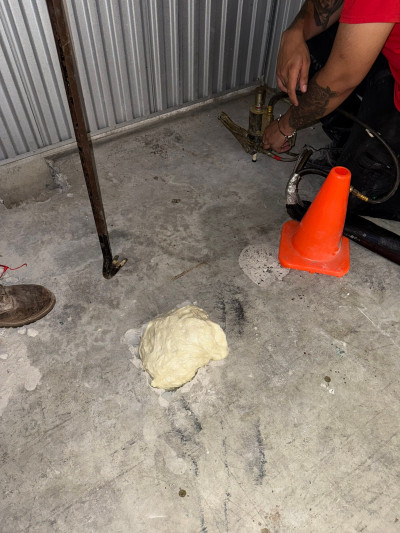
The Ram Jack crew pre-drilled approximately 100 holes, spaced six to eight feet on center across the slab. They then injected approximately 4,200 units of NCFI’s Strata-Fill 24-039 Low Exotherm Polyurethane System to stabilize and void fill an approximate 200' x 12' section of concrete slab, completing around 3,000 strokes, which equals two full sets of 55-gallon drums. During injection, they followed a technique of injecting for three to five seconds, then pausing for three to five seconds before continuing. The pre-drilling allowed the crew to monitor foam travel. For example, if the foam emerged from a nearby hole, it confirmed they were successfully filling the void. After injections were complete, each hole was sealed with hydraulic cement.
The Ram Jack crew has completed many geotechnical foam projects in the past. However, the size, scope, and active use of this facility made this project especially rewarding. The need to work quickly, cleanly, and with minimal visibility to customers was key. Thanks to Matt’s planning skills and the comprehensive training of the Ram Jack crew, the project was completed in just one and a half days.
At Ram Jack New England, staff and crew training is taken very seriously.
“This isn't just important to us; it’s foundational to everything we do. In this industry, it's not enough to simply know how to operate the equipment; it’s about understanding soil behavior, the chemistry of the foam, the timing of each injection, and how to adapt to changing conditions in real-time,” confirms Matt.
Matt was originally trained by NCFI, but in 2024, Anthony Capelle, Ram Jack’s owner, and Matt attended a regional Profoam in-service training where they met Peter Cantone (Northeast Sales Director), Ian Ellender (Geotechnical Manager), and Ken Anderson (Technical Director). “Their team was incredibly helpful in giving us the tools and support needed to tackle a project of this size. The partnership has been great ever since,” Matt points out. The precision maintained by the Ram Jack crew comes from consistent, high-quality training, whether through in-service training with industry leaders like Profoam or direct learning from manufacturers like NCFI.
Each project presents unique challenges, providing the crew with opportunities to learn, refine their skills, and improve. Ram Jack New England’s reputation is built on the quality of their work, which begins with a well-trained team. This project was no different. The client was very pleased with the results, and the job was completed on time with minimal disruption to ongoing operations. “Our install crew for this project, Adam Boutin who has been with us for two years and Wilson Gomes for four years, deserve all the credit for executing this job successfully. They’re true professionals and absolutely excelled in the field. At Ram Jack New England, we take pride in delivering highly technical work while maintaining a customer-first service ethos. We don’t just apply a product; we deliver a solution,” emphasizes Matt Snow.
Published by Spray Foam Magazine
SprayFoam / Spray Foam Insulation
Disqus website name not provided.












